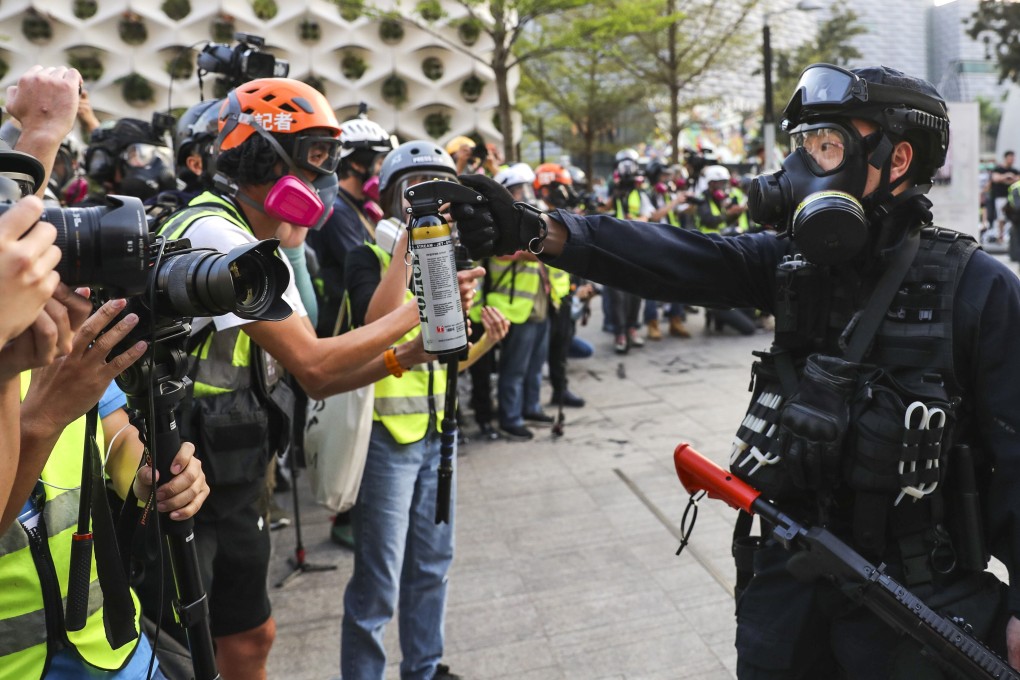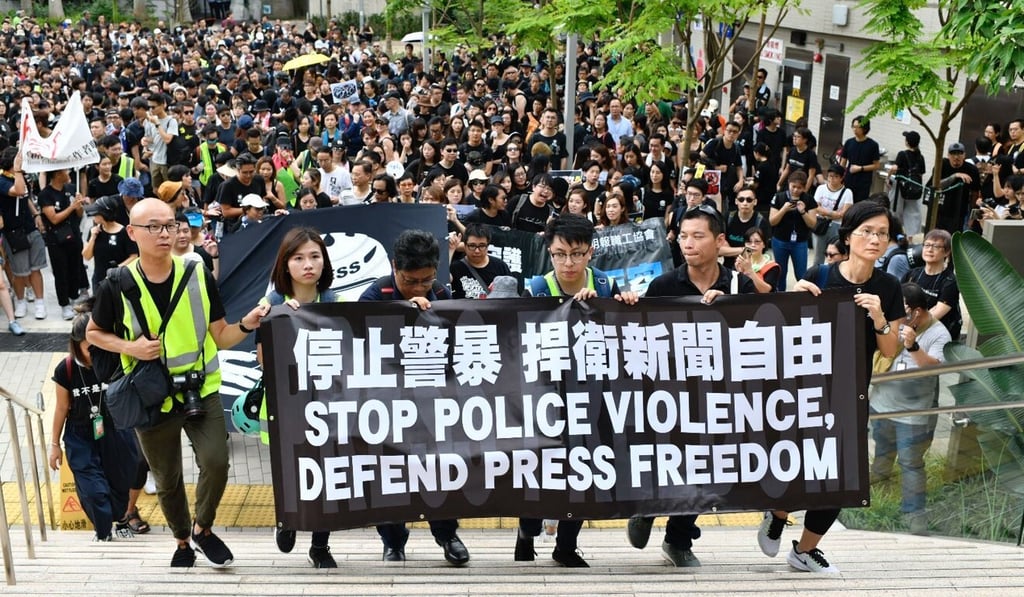Hong Kong’s High Court throws out union’s bid to have police’s treatment of journalists last year labelled unconstitutional
- Judge Anderson Chow notes, however, that his ruling ‘must not be read’ as passing judgment on whether police acted unlawfully
- The Hong Kong Journalists Association had sought declarations that police conduct last year was in breach of the Basic Law and Bill of Rights

Examples of the alleged ill-treatment included journalists being shot with rubber bullets and beanbag rounds; targeted with tear gas, pepper spray and high-powered water cannons; arrested or threatened with arrest; subjected to tactics designed to frustrate proper reporting; and being repeatedly and systematically met with police officers’ refusal to identify themselves.

But Mr Justice Anderson Chow Ka-ming on Monday concluded that the declarations sought in the latest case fell “on the wrong side of the line”, and that it would be undesirable to make “a sweeping and general declaration” that breaches took place.
“Tempted as I am to lay down some guidelines on the legal limits and scope of the police’s duty to facilitate, and not to hinder, lawful journalist activities with the hope of minimising unnecessary conflicts between the police and journalists in public order events, I am ultimately persuaded by [the police] that it would be wrong to decide matters in vacuo,” or without proper context, the judge wrote in a 38-page decision. “It would also be misleading to make declarations of legal duties in unqualified terms without identifying the possible limits or qualifications of the relevant duties.”